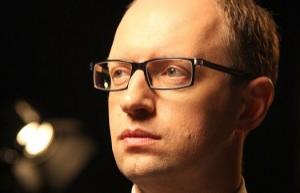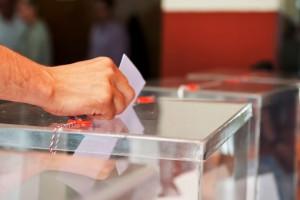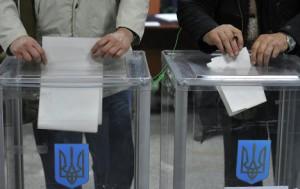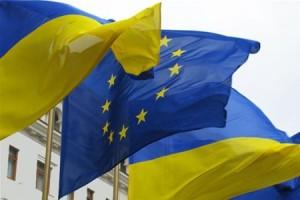The war has strengthened the position of Poroshenko on parliamentary elections
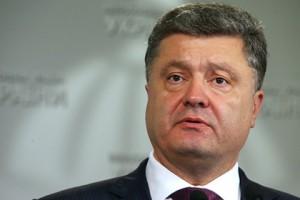
Russian President Vladimir Putin’s land grab in Crimea and support for an insurgency in his neighbor’s east are poised to help Ukraine’s pro-European leader tighten his hold on power at this weekend’s election.
Backing for Petro Poroshenko’s party and the Popular Front of his Prime Minister Arseniy Yatsenyuk tops 40 percent before the Oct. 26 ballot. Opposition groups appealing to supporters of deposed leader Viktor Yanukovych are near parliament’s 5 percent entry hurdle. The president will probably build a majority with help from smaller parties, according to the Gorshenin Institute in Kiev, which specializes in Ukraine’s European Union ties.
“The country is tired of the war and wants peace — Poroshenko’s rhetoric matches this mood,” Gorshenin analyst Vladimir Zastava said yesterday by phone from Kiev. “The pendulum will swing toward a pro-European parliament. There will be much fewer pro-Russian forces.”
The snap vote will vanquish the legislature elected under Russian-backed Yanukovych as Poroshenko seeks support to end the deadly insurgency, tackle the deepest recession in five years and revive the world’s worst-performing currency. Ukraine’s crisis has fixed the nation on a pro-EU trajectory and driven a wedge between Russia and its former Cold War foes.
While Putin denies fueling the conflict in Ukraine’s easternmost regions, support for parties that sympathize with Russia has shriveled as the death toll extended past 3,700. The unrest has closed polling stations in the rebel-held parts of the Donetsk and Luhansk regions, where voting will only take place in 13 of 33 electoral districts, according to the Committee of Voters of Ukraine, an election-monitoring group.
The annexation in March of the Black Sea Crimean peninsula, where most of the population describes itself as ethnic Russian, further dented the pro-Russia parties’ chances by removing 1.5 million voters from the election.
Poroshenko, who negotiated a Sept. 5 cease-fire and vows to bring his nation lasting peace, has benefited from the shift in allegiances. The president, who’s backed by the U.S. and the EU, said yesterday on his website that he’s “sure a strong pro-European coalition will be formed immediately after the elections.”
The Petro Poroshenko Bloc has 30 percent support among decided voters, according to an Oct. 9-18 poll by the Democratic Initiatives Fund and the Kyiv International Institute of Sociology. Next, with 13 percent, is the Radical Party of Oleh Lyashko, who backs a tougher stance toward Russia. The People’s Front is third with 11 percent.
Ex-Premier Yulia Tymoshenko’s party has 7.5 percent support, while the Opposition Bloc formed by Yanukovych allies has 6 percent in the survey of 2,025 people, which had a margin of error of less than 2.2 percentage points.
Almost a third of the electorate is undecided, reflecting difficulty in distinguishing between parties with almost identical agendas, according to Iryna Bekeshkina, head of the Ilko Kucheriv Democratic Initiatives Foundation.
Such a high share means there’s a potential for surprises, including a stronger showing for former Yanukovych allies, said Ariel Cohen, director of the Center for Energy, Natural Resources and Geopolitics at the Institute for the Analysis of Global Security, a research group in Potomac, Maryland.
Half of the parliament’s seats will be filled via party lists, with the other half to come from single-seat constituencies of independent candidates. Lawmakers have a month to form a majority.
Among their first tasks will be drafting the 2015 budget, with Ukraine facing an economic contraction of as much as 10 percent this year and the International Monetary Fund warning a $17 billion bailout may not be enough to keep the nation of 43 million people afloat.
As the war in Ukraine’s east severs economic supply lines and erodes investor confidence, the hryvnia has plunged by more than a third against the dollar in 2014, more than any other currency in the world, data compiled by Bloomberg show.
The administration that took over in February after street protests sank the previous regime has signed a delayed EU accord on political association, a step the demonstrators demanded to steer the nation away from its Soviet past.
Источник: IPnews
Yatseniuk expected to stay on as prime minister of
Ukraine’s Arseny Yatseniuk said on Wednesday he expected to stay on as prime minister at the head of a new pro-Europe,Is Ukraine Slipping Into Illiberal Democracy?
The latest parliamentary elections in Ukraine have been characterized in the West as a victory for pro-European forces.Ukraine: Good voters, not such good guys
(Economist) – To all appearances, Ukraine’s parliamentary election on October 26th was a triumph. Reformists mostly wonUkraine has only a year for implement radical reforms
Ukraine’s pre-term parliamentary election on October 26 will elect a new parliament that will be undoubtedlyНет комментариев.
Информация
Посетители, находящиеся в группе Гости, не могут оставлять комментарии к данной публикации.
